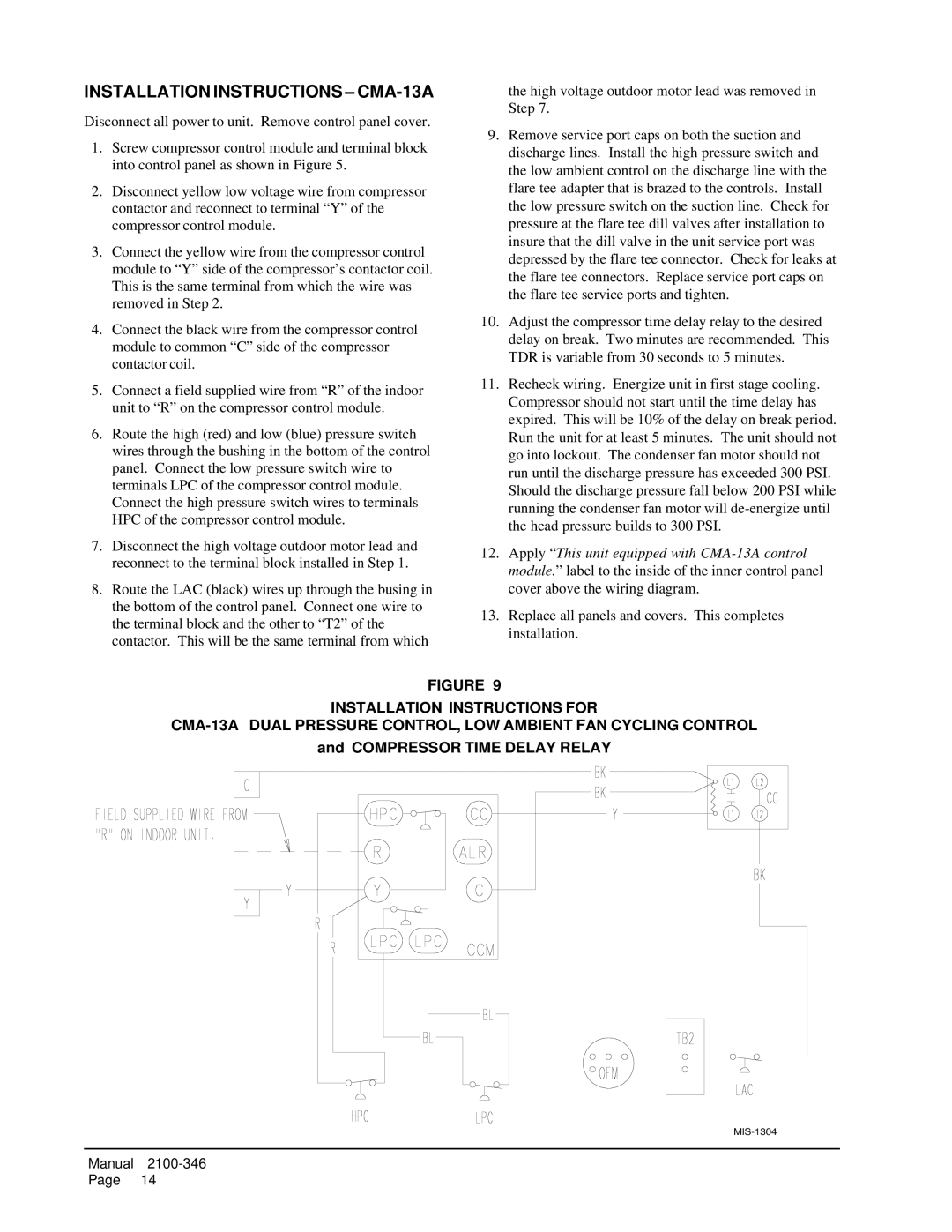HAC601-BD040, HAC481-BD040, HAC181-AD040, HAC361-AD040, HAC481-AD040 specifications
The Bard HAC series, specifically the HAC421-AD040, HAC241-AD040, HAC301-AD040, HAC601-AD040, and HAC481-AD040 models, represents a versatile and robust selection of commercial heating and cooling systems designed for a variety of applications. These units are known for their efficiency, reliability, and innovative features, making them ideal for business, industrial, and institutional use.One of the standout characteristics of the Bard HAC series is its energy efficiency. Each model is built to operate at high efficiency levels, which helps to reduce energy costs and contributes positively to environmental sustainability. The units typically feature advanced technology such as dual-fuel operation, allowing them to run on electricity and gas, providing flexibility in cost management depending on energy prices.
The HVAC systems are designed with the user experience in mind, incorporating easy-to-use digital controls. These controls provide users with the ability to adjust settings precisely and monitor system performance easily, contributing to improved comfort levels in any space. Additionally, the HAC series is known for its quiet operation, reducing noise pollution and creating a serene environment conducive to productivity.
Durability is another key aspect of the Bard HAC series. Built with high-quality materials, these units are designed to withstand the rigors of commercial use. Protective coatings and robust construction make them suitable for various applications, from schools and hospitals to warehouses and retail spaces.
Another important feature is their compact design, which allows for easy installation in tight spaces. This attribute is particularly valuable for urban environments where space is at a premium. The units also have a range of customizable options, including various sizes and heating and cooling capacities, ensuring that they can meet specific operational needs.
Bard HVAC also places an emphasis on ease of maintenance. With easily accessible components and straightforward design, routine upkeep can be performed quickly, minimizing downtime and reducing operational costs.
In conclusion, the Bard HAC421-AD040, HAC241-AD040, HAC301-AD040, HAC601-AD040, and HAC481-AD040 models are exemplary choices for those seeking a dependable, efficient, and adaptable heating and cooling solution. With their energy efficiency, user-friendly technology, durability, space-saving designs, and ease of maintenance, these units stand out as leading options for commercial HVAC needs.

